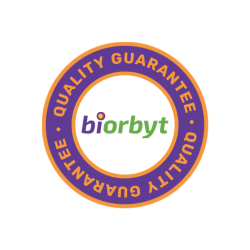You have no items in your shopping cart.
Cart summary

CCL5 Protein, Rat, Recombinant (E. coli, His)
Catalog Number: orb1961327
| Catalog Number | orb1961327 |
|---|---|
| Category | Proteins |
| Description | C-C motif chemokine 5(CCL5) is a β-chemokine that plays a primary role in the inflammatory immune response by means of its ability to attract and activate leukocytes. CCL5 is secreted by many cell types at inflammatory sites, and it exerts a wide range of activities through the receptors CCR1, CCR3, CCR4, and CCR5. Inflammatory responses can be impaired by the sequestration of CCL5 by the cytomegalovirus protein US28. Oligomerization of CCL5 on glycosaminoglycans is required for CCR1mediated leukocyte adhesion and activation as well as CCL5's interaction with the chemokine CXCL4/PF4.The deposition of CCL5 on activated vascular endothelial cells is crucial for monocyte adhesion to damaged vasculature, but CCL5 oligomerization is not required for the extravasation of adherent leukocytes.CCL5 is upregulated in breast cancer and promotes tumor progression through the attraction of proinflammatory macrophages in addition to its actions on tumor cells, stromal cells, and the vasculature. |
| Tag | N-6xHis |
| Purity | 98.00% |
| Protein Sequence | Ser25-Ser92 |
| UniProt ID | P50231 |
| MW | 13 KDa (reducing condition) |
| Application notes | Reconstitute the lyophilized protein in distilled water. The product concentration should not be less than 100 μg/ml. Before opening, centrifuge the tube to collect powder at the bottom. After adding the reconstitution buffer, avoid vortexing or pipetting for mixing. |
| Expression System | E. coli |
| Biological Origin | Rat |
| Biological Activity | C-C motif chemokine 5(CCL5) is a β-chemokine that plays a primary role in the inflammatory immune response by means of its ability to attract and activate leukocytes. CCL5 is secreted by many cell types at inflammatory sites, and it exerts a wide range of activities through the receptors CCR1, CCR3, CCR4, and CCR5. Inflammatory responses can be impaired by the sequestration of CCL5 by the cytomegalovirus protein US28. Oligomerization of CCL5 on glycosaminoglycans is required for CCR1mediated leukocyte adhesion and activation as well as CCL5’s interaction with the chemokine CXCL4/PF4.The deposition of CCL5 on activated vascular endothelial cells is crucial for monocyte adhesion to damaged vasculature, but CCL5 oligomerization is not required for the extravasation of adherent leukocytes.CCL5 is upregulated in breast cancer and promotes tumor progression through the attraction of proinflammatory macrophages in addition to its actions on tumor cells, stromal cells, and the vasculature. |
| Expression Region | Ser25-Ser92 |
| Storage | -20°C |
| Note | For research use only |
| Expiration Date | 6 months from date of receipt. |


